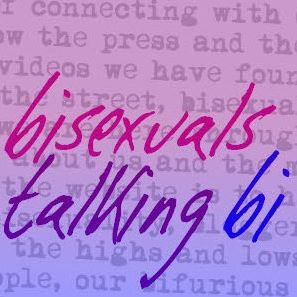Posted in57 varieties Ageing Bi and over 50 Invisibility men
Bisexual and over 50 3: Brian
This is the third in the series of email interviews with bi people over 50. Thanks again to everyone who has shown interest in this project.
Each of the “interviews” is written by the individual concerned, with the questions in bold written by me.
***
I am BrianDriscoll, aged 59, married to a woman for 31 years and living in a medium-sized city in British Columbia, Canada. Retired from a career in journalism
What does being bisexual mean to you?
Being bisexual means (to me) being sexually attracted to, and enjoy being with, both men and women.
How did you come to think of yourself as bisexual?
At age 18, I realized I wanted to experience gay sex, even though I felt strongly attracted to females. I thought that meant I was gay and felt confused and disturbed about the situation. About a year later (this is 40 years ago), I heard the term bisexual and intuitively recognized that it described me.
Has your bisexuality changed over the years, and if so how?
Over the years I have heard that gay people follow a path from bi to gay, and wondered if that would apply to me as well. It hasn't really. I've remained bisexual though I lean more toward homosexual in terms of physical needs and straight in terms of emotional needs. I have never felt the need for an emotional relationship with a man.
What do people in your life know about your bisexuality and how do they react?
My wife has known I am bi for many years but most friends and acquaintances are only now learning about my bisexuality as I have come out recently on social media. The reactions have been muted, at best. Nothing really negative or positive. In fact, I've had no reaction from most people. That does not surprise me, though. If I learned on a friend's Facebook page that he was bisexual or gay, I may not have commented directly, either.
Looking back over your life so far, is there anything you wish you had done differently?
I came out late in life. I deeply wish I had done so twenty or thirty years ago. If I were twenty today, I would probably come out at that age. But then, today's situation is different from the 1970s.
What are your hopes and fears for the future, regarding bisexuality?
That difference between then and now makes me profoundly hopeful for young bisexuals. They can (and probably should) come out shortly after they come to accept their sexuality. Coming out early can make a great difference in their lives.
Would you like to help combat bi erasure and increase the visibility of bisexual people over 50? There are plenty of us out there, but far too many people don’t know that.
I am looking for other individuals over 50 who would like to contribute their “email interviews”, as Brian has done here. For more about what to do, look at this post.
Thanks.



